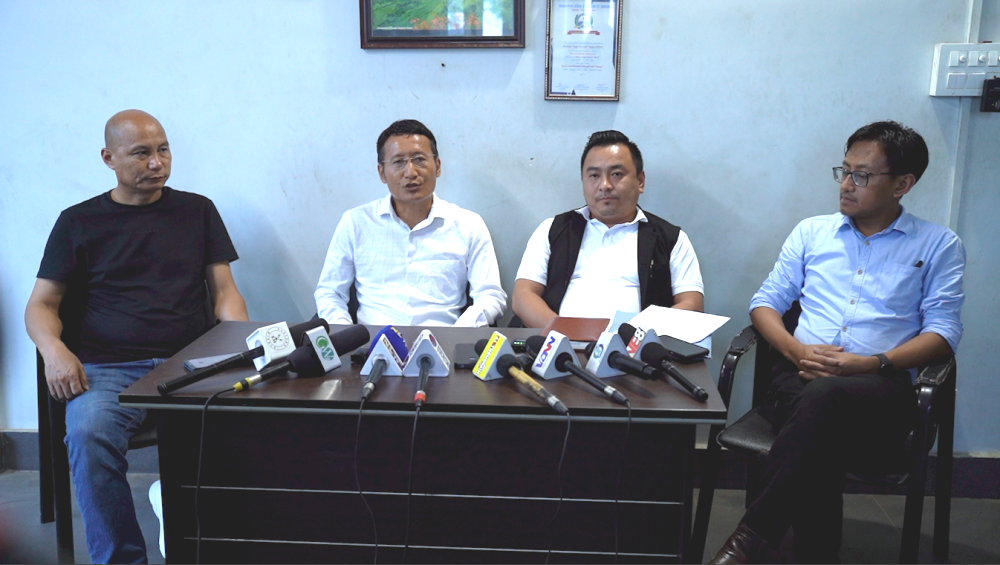The Inner Line Regulation Commission of the Naga Students’ Federation has demanded implementation of Inner Line Permit (ILP) in districts—Dimapur-Chümoukedima-Niuland
Share

Members of NSF’s Inner Line Regulation Commission addressing media persons on Friday. (EM Images)
DIMAPUR — The Inner Line Regulation Commission (ILRC) of the Naga Students’ Federation (NSF) has demanded ‘substantive’ implementation of the Inner Line Permit (ILP) in the districts of Dimapur, Chümoukedima, and Niuland, citing these areas as major entry points for both legal and illegal influx of outsiders.
Addressing a press conference at the Dimapur Naga Students’ Union (DNSU) office on Friday, ILRC Convenor NSN Lotha said that the commission had submitted a memorandum to the deputy commissioners of the three districts. The memorandum included a nine-point questionnaire on the status and enforcement of the ILP system since Nagaland government brought these districts under the purview of the Bengal Eastern Frontier Regulation (BEFR), 1873, in September 2024.
Among the queries raised were: the number of ILPs issued since the notification, the methods used to detect and regulate outsiders residing in the districts, whether any surprise ILP checks have been conducted, and if any applications for ILPs have been rejected so far.
Also read: No ILP, No Entry: Dimapur tightens movement with new permit system
According to Lotha, the commission is focusing on these three districts as they are believed to be the main channels for the influx of non-locals into Nagaland. “If proper enforcement of ILP is done in Dimapur, Chümoukedima, and Niuland, a major part of the enforcement challenge will be resolved,” he maintained.
Lotha expressed concern over the growing control of the local economy by non-Nagas, particularly in Dimapur. “Non-locals who were once guests are now behaving like hosts. Because of the hospitable nature of Nagas, people from outside come and take advantage, controlling our economy and influencing our markets,” he said.
The commission urged the government to fully implement the ILP system without any loopholes or exemptions. He particularly highlighted the issue of individuals who arrive in the districts in the morning and leave by evening, thereby bypassing ILP scrutiny. “There should be no exemptions. Everyone must be under the radar of existing inner line regulations,” he asserted.
The ILRC reiterated that their aim is not to oppose the government but to assist it in enforcing existing laws. Lotha urged non-locals residing in or visiting Nagaland to respect the laws of the land. “We want to create awareness that Nagaland is not just another state. It is a unique state, born out of a historical movement. That uniqueness must be upheld,” he said.
Citing economic dominance by outsiders, Lotha claimed that more than 95% of shop establishments in the three districts are owned or operated by non-locals. He said the lack of effective ILP enforcement has allowed non-locals to benefit disproportionately from the state’s development.
The ILRC called on the state government to establish a more conducive system that empowers local people to reclaim control over their economy and future.